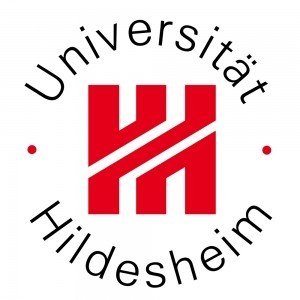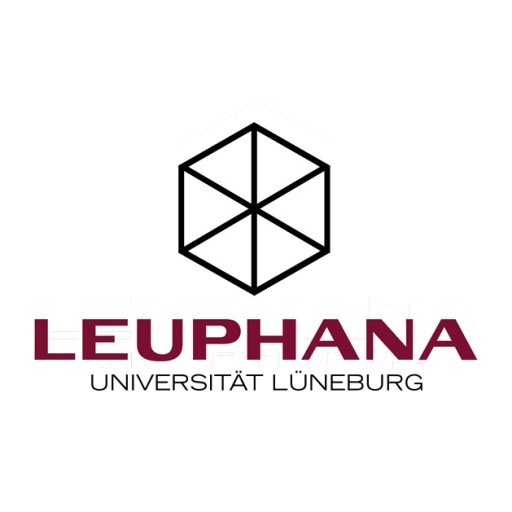Photos of university
The Master's program in Data Analytics at the University of Hildesheim is a comprehensive and interdisciplinary course designed to equip students with the essential skills and knowledge to analyze complex data sets and derive actionable insights. This program combines theoretical foundations with practical applications, preparing graduates for a variety of roles in industry, research, and public sectors that require expertise in data-driven decision making. Throughout the course, students engage with advanced statistical methods, machine learning techniques, data management, and visualization tools, enabling them to handle large-scale and diverse data sources effectively. The curriculum emphasizes not only technical proficiency but also the ethical considerations and societal impacts associated with data analytics, ensuring that graduates are responsible and thoughtful practitioners. Delivered by experienced faculty members, the program incorporates innovative teaching methods, including project-based learning and collaborations with industry partners, to provide real-world experience. Students also have opportunities to participate in internships, workshops, and seminars that expand their professional networks and deepen their understanding of current trends and challenges in data analytics. The program prepares graduates for careers in areas such as business intelligence, healthcare analytics, marketing analysis, financial data analysis, and more. Graduates will possess a solid foundation in programming languages like Python and R, statistical software, and data visualization tools. With its strong emphasis on interdisciplinary knowledge and practical skills, the Data Analytics Master's program at the University of Hildesheim aims to develop versatile professionals capable of addressing the growing demands for data expertise across various sectors worldwide.
Educational organisation
The two-year Master's programme in Data Analytics comprises four semesters with a total of 120 CPs (credit points). The study programme is structured into a methodological core (65%), an application area (10%), and a Master's thesis (25%).1st Semester
Compulsory modules:
- Machine Learning Lecture (6 CPs)
- Modern Optimisation Techniques Lecture (6 CPs)
- Programming Machine Learning Lab Course (6 CPs)
- Seminar Data Analytics I Seminar (4 CPs)
2nd Semester
Compulsory modules:
- Big Data Analytics Lecture (6 CPs)
- Advanced Machine Learning Lecture (6 CPs)
- Data and Privacy Protection Lecture (3 CPs)
- Distributed Data Analytics Lab course (6 CPs)
- Data Analytics II Seminar (4 CPs)
- Project (part I) (6 CPs)
3rd Semester
Compulsory modules:
- Planning and Optimal Control Lecture (6 CPs)
- Project (part II) (9 CPs)
- Data Analytics III Seminar (4 CPs)
and one application module of 6 CPs
4th Semester
The Master's thesis is written during the last semester. (30 CPs)
Students can choose a methodological specialisation and applications from the following list.
Methodological Specialisation (MS):
- Advanced Case-Based Reasoning
- Bayesian Networks
- Computer Vision
- Markov Chains
Application Module (AM):
- Computer Science/Software Engineering
- Software Product Lines
- Requirements Engineering
- Seminar Software Engineering
- Computer Science/ Media Systems
- Data and Process Visualisation
- Contextualised Computing and Ambient Intelligent Systems
- Contextual Design of Interactive Systems
- Lab Course Media Systems
- Seminar Media Systems
- Business Administration and Information Systems
- Advanced Marketing
- Advanced Logistics
- Seminar Business Studies
- Information Retrieval and Information Science
- Introduction to Information Retrieval (IR)
- Introduction to Natural Language Processing
- Multilingual Information Systems
- Seminar Multilingual Information Retrieval
- Project Multilingual Information Systems
- Lab Course Information Retrieval (IR)
- Natural Language Processing
- Natural Language Processing 2
- Seminar Computer Linguistic Resources
- Seminar Computer Linguistic Processes
- Project Computer Linguistic Resources
- Project Computer Linguistic Processes
- Lab Course Natural Language Processing
- Environmental Sciences
- Geographic Information Systems
- Soft Skills
- English 1
- English 2
Forms of assessment
Exams are mostly written exams, but oral exams are also possible.Course objectives
The programme is structured in a way that it builds on the core data modelling and data analytics knowledge with application on the large volume of real-world data using modern big data technologies such as the Apache Hadoop, Apache Spark, NoSQL, etc. All participants of the programme will get hands-on experience of handling large-scale real-world data on a state-of-the-art-computer cluster and Amazon Web Services (AWS) cloud services.Language requirements
Sufficient knowledge of English can be demonstrated by a certificate (TOEFL computer-based test score of 61 or above; IELTS band of 6 or above; or an equivalent certificate) or a German Abitur.Academic requirements
The Master's programme in Data Analytics is highly relevant for students aiming to pursue careers in research in an interdisciplinary field, data analytics, or a related industry. Students with a Bachelor's degree in Computer Science, Information Technology, Mathematics, or related fields are eligible to apply. Generally, students with a strong analytical, mathematical, and statistical base and good programming skills are more suited for this programme.English language:
English language proficiency is required to undertake the International Master's programme in Data Analytics. Sufficient knowledge of English can be demonstrated by a certificate (TOEFL computer-based test score of 61 or above; IELTS band of 6 or above; or an equivalent certificate) or a German Abitur.
Enrolment fees
The only fees you have to pay to the university are so-called social fees, which are around 371 EUR per semester (they can vary a little from semester to semester). The social fees entitle all students to inexpensive meals in the canteen of our university and free public transport in the region of Hildesheim / Hannover.Services and support for international students
The International Office (IO) supports international students in various ways to help them have an enjoyable and rewarding stay at the University of Hildesheim.The IO offers a buddy programme, in which Hildesheim students volunteer to help international students at the beginning of their stay. German students receive the addresses of the international students from the IO and contact them before their departure to help answer any questions. Normally, Hildesheim students pick up international students at the train station, show them to their accommodations and help with their first town and university visits. Often, these contacts continue throughout the semester and beyond.
The IO and the Student Advisory Office organise numerous activities before the start of the semester to provide international students with practical information about the university, their studies, and the city. The IO organises a one- to two-week introductory programme, including a welcome breakfast, city tours through Hildesheim, and an introduction to the computer lab. The IO also hold information sessions on enrolment in courses, ECTS-recognition, opening a bank account, tenancy agreements, medical insurance, study plans, and answers
other frequently asked questions. More details are given in the introductory package.










